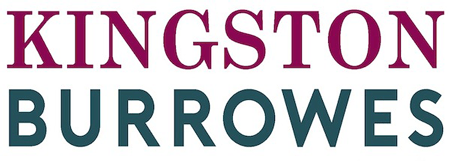Business owners routinely take steps to protect their business, from recruiting the best staff to insuring their business assets. However, one frequently overlooked aspect is to protect themselves and the vital role they play in the business. If something were to happen to a shareholder or other key person what impact might this have on the business. There are however insurance options available to protect the business in the event of the loss of a key individual.
Shareholder Protection
Shareholder protection insurance is invaluable for businesses with two or more shareholders. It provides a form of succession planning for the business and helps avoid financial uncertainty should a key shareholder die a premature death, potentially leaving the company extremely exposed. This means there is no risk of the shares being held by a disinterested family member who could end up selling to someone else with a different strategy or worse still having a say in the running of the business and commanding a salary when the business has just lost a vital piece of the jigsaw. It also means the deceased shareholder’s family have certainty that they will get an agreed sum for the shares.
Additionally, the insurance provides a sum that can be used by other shareholders to purchase the equity, meaning they don’t need to save any cash. Ultimately, shareholder protection insurance means a business can have a better chance of surviving and returning to normality, which is good for other owners, staff, customers and even lenders as it means the future of the firm is secure. Without this insurance in place, businesses risk of folding can be significantly increased.
Example 1
One day Ray is killed in a cycling accident. His family and business partner Keith are devastated, and Keith has lost a valuable partner who contributed 50% to the running of the business. He will clearly be missed, and the business will be significantly affected, especially in terms of turnover.
Ray’s family have lost a husband, father and the main wage earner. Things will never be the same again, however, they still have a 50% share in the business which should give them some income. Ray’s wife has no prior knowledge of the business operations, and even if she did, her time is consumed by her existing career and children.
Keith realises that not only has he lost his business partner, but he also has a new business partner who is unable to support the running of the business, yet still claim 50% of the annual profits. Keith’s own income may suffer also, with only one partner generating the business.
In many cases this situation could cause a business to stop trading. All parties are adversely affected, as Keith is forced to start a new business venture and Rays wife is left with 50% of a company of little value.
However, shareholder protection could have determined a very different outcome. Ray’s wife would have received a lump sum, equal to the value of his share in the company and Keith would have continued to operate the company alone, keeping all profits. Everyone receives a fair outcome as a result of a little bit of forward planning!
Example 2
In another scenario, Ray could be diagnosed with a critical illness. As a 50% shareholder he would still be entitled to draw a wage from the business, but it wouldn’t be long before both wages dropped significantly. A Shareholder protection policy would stop this from happening and protect both parties.
Key Person Insurance
Key Person Insurance protects the business from the financial impact of losing a key employee (it can classify several different roles or functions that a key employee undertakes eg. as the head of a sales, marketing, production, directors etc), whose death or illness would have a significant impact on the financial position of the business. Without this the business could be left with a black hole to fill, both financially and personally.
It can be arranged to provide a lump sum if they die or are diagnosed with a critical illness.
Relevant Life Policy
A Relevant Life Policy is a term assurance plan available to employers to provide an individual death in service benefit for an employee. It’s designed to pay a lump sum if the person covered dies or is diagnosed with a terminal illness, whilst employed during the term. A Relevant Life Policy is paid for by the employer and is often used as an employee benefit and there are employer tax advantages around this.
In terms of cover in the event of a claim, the pay-out can be based on a multiple of salary; for example: 5 x salary.
Some final considerations
- If you lost a key shareholder, what would happen to your business?
- Would you company be able to continue trading?
- Do you have cover for the other key people in your business?
- Could you benefit from potential tax advantages of a Relevant Life Policy?
If you would like further information on any of the above, please contact Matt Baker at Bakerhill Associates on +44 (0)7584 577 005 or email matt.baker@bakerhill.co.uk





